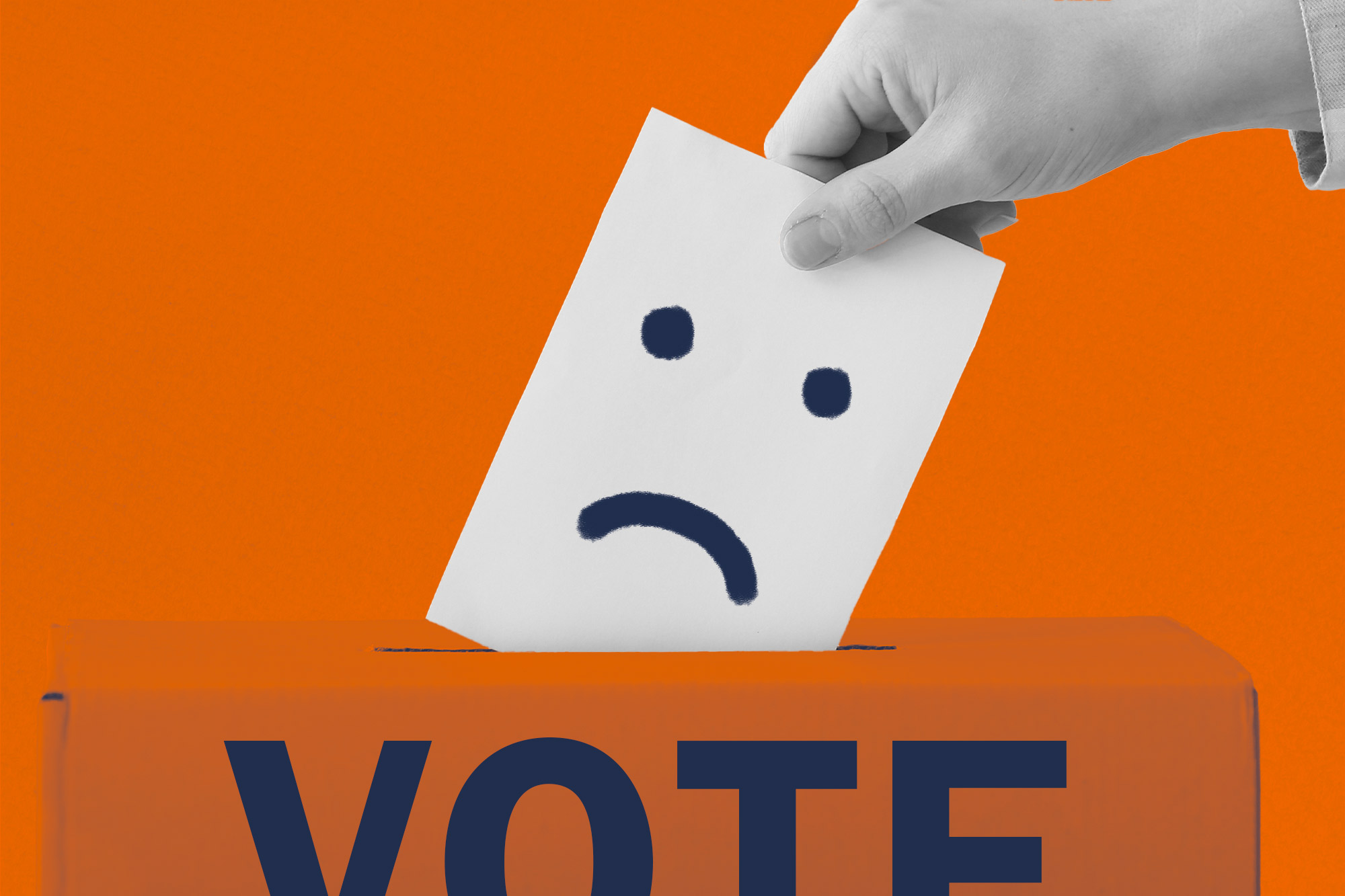To find out who is dissatisfied and why, UVA Today reached out to Carah Ong Whaley, the academic program officer for the University of Virginia’s Center for Politics and host of the center’s “Politics Is Everything” podcast.
Q. How is it that surveys find people are simultaneously very satisfied and not at all satisfied with how democracy is working in the U.S.?
A. One of the most important things I found examining American National Election Survey data since 2004 is that there has been a shift in attitudes, especially since 2012. Since then, there has been increased polarization in survey responses, and partisanship and race play the most significant role. When individuals identify with the party in the White House, they are more likely to express satisfaction with how democracy is working.
A recent Gallup survey reinforces the role that partisanship plays in people expressing satisfaction with democracy. That survey shows a new low of just 28% of U.S. adults are satisfied, compared to 61% in 1984, when the question was first asked, and 36% in 1992.
The Pew Research Center also finds a significant majority (63%) express little to no confidence in the future of the U.S. political system.
There is also a partisan gap in responses in the Pew survey, with 81% of Republicans saying the system is working not too [well] or not at all well, compared to 64% of Democrats.
As there has been sorting of voters by party along education lines – with more college-educated voters identifying as Democrats and more Americans without a college education identifying as Republicans – differences in satisfaction with democracy by education level have also increased. Those without a college education have had the sharpest decline in satisfaction with how democracy is working, and this decline is also reflected in beliefs about the responsiveness of political institutions to peoples’ needs.
Q. Which demographic group tends to be most satisfied with the U.S. democracy and which is least satisfied?
A. Different surveys give a sense of how different people are feeling about the way democracy is working. In the American National Election Survey data, trends for Black and Hispanic/Latino demographic subgroups often differ from those of white subgroups within the same political affiliation. That is indicative of their different lived experiences and differing levels of political inclusion.
Young people also have heightened levels of dissatisfaction. Nearly half of those [ages] 18 to 29 report they were not very satisfied or not at all satisfied in 2020, compared to one-third of those 60 and older. Just 12 years earlier, only 22% of the youngest age group reported being not very satisfied or not at all satisfied.
A recent national poll from the Economist/YouGov found that nearly one-third of those 18 to 29 agree that democracy is no longer a viable system and that America should explore alternative forms of government to ensure stability and progress.
Coupled with growing dissatisfaction in American democracy, there has also been a significant decline in the rates that college students believe their First Amendment rights are secure. Some 74% of students believed that freedom of speech was secure in 2016, compared to just 47% in 2021, according to the Knight Foundation.
Breaking down by demographic groups, in 2021 a mere 5% of Black students believed the First Amendment protected people like them, which was down from 25% in 2019. Numbers for white students on the same question were 43% in 2021 and 53% in 2019.
UVA and other institutions of higher education really need to reimagine not only our approaches to teaching about democracy, but how we can increase skills, capacity and agency of young people to reinvent it.
Q. What are the issues and challenges in our current democracy?
A. Several surveys show views on democracy are related to how respondents view issues from immigration to the economy, from climate change to abortion. Top concerns for people are economic inequality and political corruption, as well as the role and influence of global corporations and Big Tech.
American respondents listed inequality, corruption and fear of unfair elections as principal threats to democracy and expressed concern about disinformation and social media.
Other surveys show that Democrats are far more likely than Republicans to be concerned that a person’s rights and protections might vary depending on which state they are in. Conversely, a much larger share of Republicans than Democrats express concern that the federal government is doing too much on issues better left to state governments. Majorities in both parties think there is too much partisan fighting, campaigns cost too much, and lobbyists and special interests have too much say in politics.
Q. Is there any foreseeable way to resolve issues and bolster the democratic process in the U.S.?
A. As an educator, my first response is to say that educating for democracy is key. But the type and quality of education matters greatly and is even more critical as we are experiencing the politicization of education.
Responses to a broad range of surveys show we desperately need structural reforms to increase responsiveness of political institutions to people’s needs; address pernicious political polarization and the malicious spread of information that contributes to political violence; and reform how we choose leaders and increase representation in policy and decision-making processes.
We all have a responsibility to step up and contribute to such efforts.












